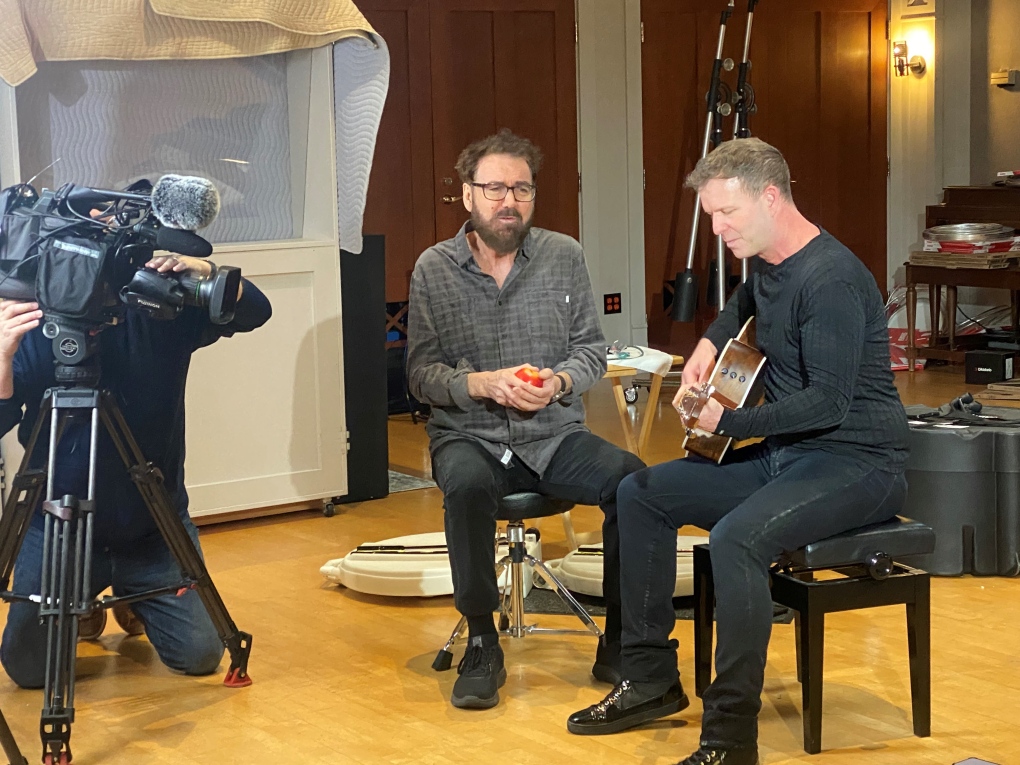After struggling through years of pandemic shutdowns, many Canadian musicians are now being hit hard by the ongoing cost-of-living crisis.
"It's a huge impact," said Drew Arnott who co-founded the '80s new wave band Strange Advance. "We have to transport huge amounts of gear and it gets very expensive."
Arnott and his bandmates are preparing to travel across Canada for their upcoming spring tour, which will celebrate the 40th anniversary of their first album, Worlds Away. However, they are finding that getting back on the road is getting very pricey.
"We are doing an extensive tour across the country and trying to play as many provinces as possible but the costs of it all are going up all the time."
The tour, which kicks off in Victoria this May, was originally scheduled for early 2020. The COVID-19 pandemic, and the subsequent closure of concert venues, forced the band to shelve their plans. Since then, high inflation, travel costs, and the rising cost of living have dramatically changed the band's touring budget.
"The demand is there and the venues are there," said one of the band's singers and guitarist Sean Dillon. "It is really hard to get around the nuts and bolts of how do you get it all out there on the road, because there are so many rising costs."
The group estimates its expenditures, since first planning the tour, have increased as much as 50 per cent. Band members say they're grappling with soaring gas prices, venue rentals, accommodations and even food.
"We often have about 10 or 12 people travelling with us and taking them out for dinner to a restaurant is just extortionate," said Arnott. "I used to pay, like, $10 or $15 for a main dish, and now it's like $25 or $30 at some places."
Adding to that, Dillon says, the sale of concert merchandise often helps offset touring costs; however, he's quick to point out that it's now more expensive to produce items like T-shirts and posters.
"It's difficult for musicians on many fronts. You need to be able to get out and play for your fans but everything just costs a lot more."
 Drew Arnott and Sean Dillon, of Strange Advance, jamming in Vancouver's Armoury Studios in preparation of their spring tour. (Melanie Nagy / CTV National News)
Drew Arnott and Sean Dillon, of Strange Advance, jamming in Vancouver's Armoury Studios in preparation of their spring tour. (Melanie Nagy / CTV National News)
It's not just musicians. Many independent studio owners and music producers are also feeling the price pinch.
Lin Gardiner owns and operates The Sound Garden Retreat, which is a recording studio located in Roberts Creek on B.C.'s Sunshine Coast.
"It's an industry that is hard unless to sustain yourself unless you're at the very top echelon, like the Grammy-kind of elite," said Gardiner.
For over two decades, Gardiner has been working with artists from around the world.
While business in her studio slowed during the pandemic, she says it's currently on the upswing with several bookings, but the challenge is finding a price-point that works for all her clients.
"I have what's essentially a book rate for working with me or working in my studio and I try to be accommodating," she said. "While I am flexible, there is only so far you can go to give a discount before it cuts into your own budget."
To ensure her profits cover her increasing costs, Gardiner says she's having to cut back on some of her overhead.
"It is quite typical for studios to leave their equipment on all the time, but you know, I am much more mindful these of that these days, and I'll turn the equipment off so I'm not running up hydro bills and that kind of thing."
Festival organizers and promoters are also being hit. In B.C. alone, at least three major events have either been cancelled or put on hold.
Last month, the founders of the Squamish Constellation Festival announced they were "contemplating the viability of producing the annual event in 2023," leaving it in limbo.
Some of the costs hurting festivals include necessary infrastructure such as fencing, stages and toilets.
“It is going to take lovers of the arts, with an abiding passion for live music and appreciation of the positive impact music festivals have on people's lives and mental health, to reinvent this industry," said Kirsten Andrews, one of the festival's co-founders.
The long-running Vancouver Folk Music Festival has also been struggling. Earlier this year, the non-profit's board announced that because of financial difficulties, it would be recommending that the society be dissolved, thereby bringing an end to the summer event.
In a written statement, board president Mark Zuberbuhler, said the festival "is currently in a financially dire condition."
A fundraising campaign and volunteer drive has been launched to try to save the beleaguered event.
“Our funders, our partners, other festivals, our members, and our audience have said unequivocally that they want to help with the work of saving the festival,” Zuberbuhler said in the statement.
As for Strange Advance, despite the expenses, the group refuses to pass all the extra costs onto their fans.
"We would like to keep it under $50 a ticket, but realistically they should be $75," said Arnott. "But we don't want to scare people away because we know these are tough times so we want to keep the costs reasonable."
The band hopes its upcoming tour will not only sell out, but at least break even.










































